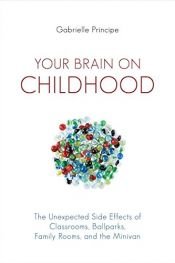Your Brain on Childhood: The Unexpected Side Effects
Blurb
This book reviews the consequences of raising children in today’s highly unnatural environments and suggests ways in which parents can learn to naturalize childhood again, so that a child’s environment gels with how the brain was designed to grow. In a clearly presented, accessible narrative, the author marshals scientific evidence from a wide array of fields to explain why there is a disconnect between the brain’s evolutionary history and the technology-centered present. Research from both human and animal studies indicates that brain development is fostered by consistent opportunities for face-to-face communication and freewheeling pretend play.The startling implication is that today’s structured, controlled, and fabricated surroundings are exactly wrong for developing brains. Instead of emphasizing technology and organized activities, parents and teachers could better help children learn by encouraging exploration, experimentation, and exposure to the real world. Recess, now often dismissed as a waste of time, should be considered an essential part of children’s cognitive and social development; lessons should be individualized as much as possible; and the current focus on homework and letter grades should be de-emphasized and eventually eliminated altogether.
Fascinating and controversial, this well-researched discussion by an expert on child development will make parents and school systems rethink how we are raising our children.

 English
English Español
Español Deutsch
Deutsch










Member Reviews Write your own review
Be the first person to review
Log in to comment